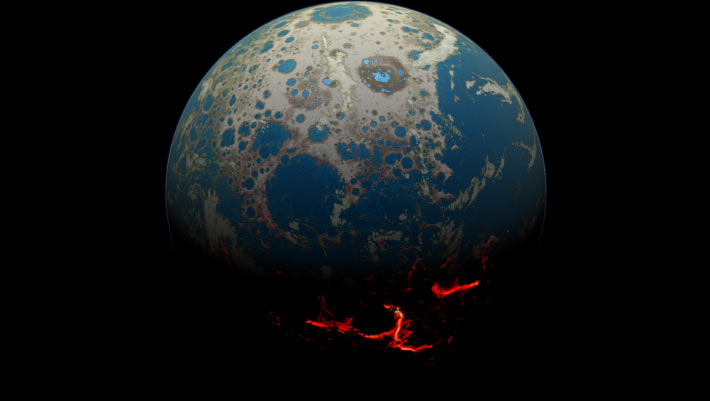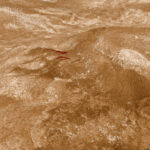Analyzing 4-billion-year-old zircon crystals from the Jack Hills in Western Australia’s Mid West region, geoscientists have pushed back the timeline for the emergence of freshwater to just a few hundred million years after the planet’s formation.
Widespread interaction between meteoric (fresh) water and emerged continental crust on the early Earth may have been key to the emergence of life, although when the hydrological cycle first started is poorly understood.
In the new research, Curtin University scientist Hamed Gamaleldien and colleagues used the oxygen isotopic composition of zircon crystals from the Jack Hills, Western Australia, to determine when the hydrological cycle commenced.
Their results show that meteoric water appeared on Earth about 4 billion years ago — 500 million years earlier than previously thought.
“We were able to date the origins of the hydrological cycle, which is the continuous process through which water moves around Earth and is crucial for sustaining ecosystems and supporting life on our planet,” Dr. Gamaleldien said.
“By examining the age and oxygen isotopes in tiny crystals of the mineral zircon, we found unusually light isotopic signatures as far back as 4 billion years ago.”
“Such light oxygen isotopes are typically the result of hot, freshwater altering rocks several kilometers below Earth’s surface.”
“Evidence of freshwater this deep inside Earth challenges the existing theory that Earth was completely covered by ocean 4 billion years ago.”
“The discovery was crucial for understanding how Earth formed and how life emerged,” said Curtin University scientist Hugo Olierook.
“This discovery not only sheds light on Earth’s early history but also suggests landmasses and freshwater set the stage for life to flourish within a relatively short time frame — less than 600 million years after the planet formed.”
“The findings mark a significant step forward in our understanding of Earth’s early history and open doors for further exploration into the origins of life.”
The findings were published this week in the journal Nature Geoscience.
_____
H. Gamaleldien et al. Onset of the Earth’s hydrological cycle four billion years ago or earlier. Nat. Geosci, published online June 3, 2024; doi: 10.1038/s41561-024-01450-0




